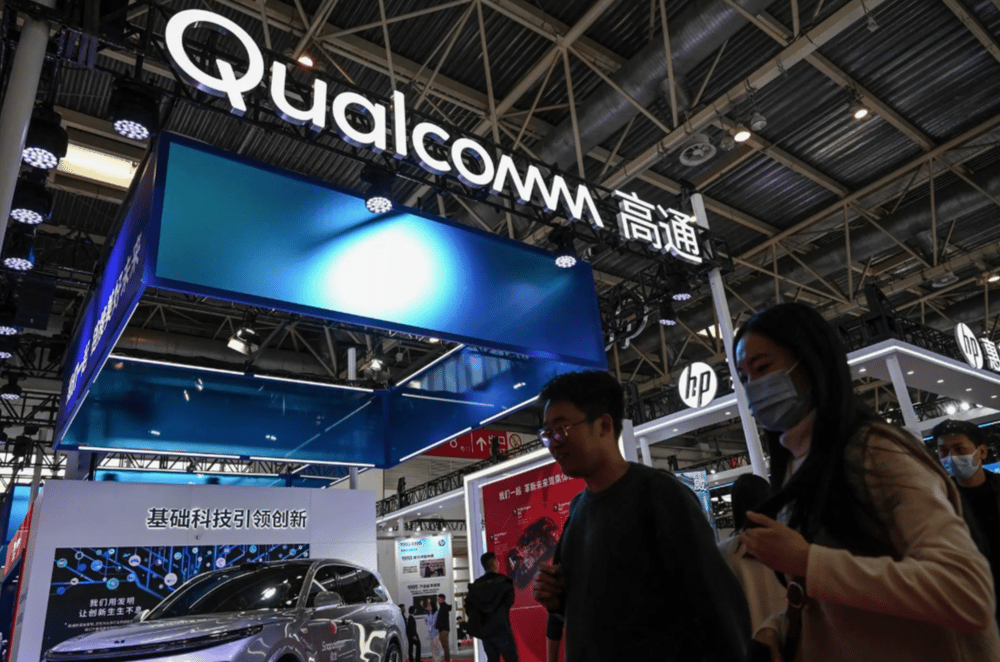Qualcomm Expands AI Footprint with New R&D Center in Vietnam Amid Growing Demand
Qualcomm Inc. $QCOM, one of the world’s leading semiconductor companies, announced the opening of a new research and development (R&D) center in Vietnam. The facility, which will focus on artificial intelligence (AI) technologies, highlights the company’s intention to scale generative and agentic AI applications across multiple verticals, including mobile, automotive, extended reality (XR), and Internet of Things (IoT) solutions.
The launch aligns with Vietnam’s broader national ambitions for AI, semiconductor self-sufficiency, and digital infrastructure modernization. Qualcomm’s expansion underscores Southeast Asia’s growing strategic importance in global chip innovation, as supply chains diversify and AI deployment accelerates worldwide.
Qualcomm’s AI Strategy and the Role of the Vietnam R&D Hub
The newly launched R&D center will specialize in advancing Qualcomm’s capabilities in generative and agentic AI — technologies that power real-time reasoning, content creation, and adaptive machine behavior. These technologies are becoming critical components in next-generation devices such as smartphones, personal computers, autonomous vehicles, and smart wearables.
By establishing a physical AI innovation hub in Vietnam, Qualcomm aims to deepen regional collaboration, localize technology transfer, and build scalable research capacity. According to the company, the center will act as a nucleus for AI algorithm development and cross-sector solutions, leveraging Vietnam’s young tech talent and supportive government policies.

📌 Key Facts:
🧠 Qualcomm opens AI R&D center in Vietnam, focused on generative and agentic AI
📱 Target applications include smartphones, XR, PCs, automotive, and IoT devices
🌏 Expansion aligns with Vietnam’s digital and semiconductor strategies
🤝 Prioritized goals: tech transfer, talent development, and ecosystem partnerships
🔗 A strategic move to diversify R&D beyond U.S. and China-centric hubs
Market Response and Industry Implications
Although Qualcomm shares remained largely stable following the announcement, analysts view the move as a strategic step toward strengthening the company's long-term position in the global AI ecosystem. The timing is notable: the semiconductor industry is undergoing a geographic recalibration amid U.S.-China tensions, and companies are actively seeking innovation footholds outside traditional power centers.
Vietnam has emerged as a promising destination due to favorable demographics, competitive operating costs, and increasing government investment in STEM education and digital transformation. By establishing a physical presence, Qualcomm is both hedging against supply chain risks and positioning itself to capitalize on future growth in AI-powered devices.
Meanwhile, the move also reflects a growing trend among U.S. tech companies to co-develop region-specific solutions in emerging markets — not merely as cost-saving measures, but as genuine innovation strategies.

🔍 Key Takeaways:
Qualcomm’s Vietnam R&D center reinforces its commitment to AI-driven product innovation.
Generative and agentic AI will be applied across multi-industry platforms, from XR to automotive.
Vietnam’s policy support and digital transformation agenda make it a strategic R&D hub.
Global semiconductor supply chains are increasingly shifting toward Southeast Asia.
Cross-border technology collaboration is becoming essential in AI development cycles.
Qualcomm’s Strategic Bet on Southeast Asia’s AI Ecosystem
The opening of Qualcomm’s AI R&D center in Vietnam marks more than just a regional investment — it signals the company’s broader vision for decentralizing innovation and embedding itself in high-growth digital economies. As the demand for AI integration in consumer and industrial electronics continues to surge, firms like Qualcomm are not only evolving their technological focus but also their geographic strategy.
With Vietnam actively investing in its AI and semiconductor infrastructure, the partnership may yield long-term benefits for both parties — helping Qualcomm scale its AI roadmap while accelerating Vietnam’s emergence as a credible global tech hub.















Comments